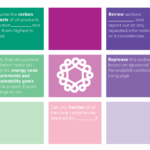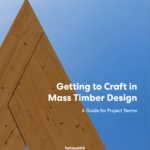
The current processes around Project Specifications may feel tiring and have a steep learning curve for novices. Recent advances in natural language processing (NLP), such as ChatGPT, enable human-like interaction with AI-bots that can quickly parse large amounts of text. We hypothesize that incorporating Conversational AI into product submittal reviews can lead to quicker responses,... Read more »










